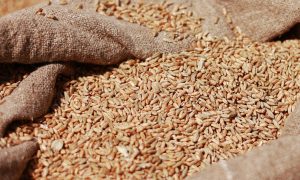Prices of basic goods expected to stabilise further

The Confederation of Zimbabwe Retailers (CZR) expects prices of basic goods to become stable starting this month going forward when they reach import parity or the same levels as those across the region.
This comes after the Government restored Value Added Tax (VAT) on basic food items believed to have caused small price shocks recently.
Effective January 1, 2024, Statutory Instrument (SI) 248 of 2023 eliminated VAT on essential food commodities including maize meal, rice, sugar, cooking oil, flour, and bread.
The transition from zero-rating to VAT exemption, prohibits suppliers from reclaiming input VAT on taxable supplies, translating to between 2 and 3 percent increase in costs, which has lately pushed prices higher.
However, unresolved exchange rate disparities may also continue to exert pressure on prices, especially in local currency since these are pegged to the US dollar.
The Government said recently it was working on measures to stabilise the Zimbabwe dollar, including through a structured currency.
CZR president Danford Mutashu acknowledged the Government’s rationale behind the decision, citing concerns over substantial VAT refunds on zero-rated products and anticipated challenges such as the El Nino-induced drought and fluctuating commodity prices.
“The Government’s decision to exempt VAT on basic foods demonstrates a proactive approach to address immediate fiscal pressures while considering the impending economic challenges,” Mr Mutashu said.
“While the 2 to 3 percent cost increase is noted, it is deemed manageable within the current economic climate.”
As a result, CZR believes that despite such an increase in costs will however not lead to price increases as local manufacturers can feel the gap created by less imports.
“We do not anticipate any price increases as local manufacturers have sufficient capacity. Moreover, this measure supports job creation locally and facilitates greater circulation of money within the local economy,” the CZR president said.
“We will closely monitor the situation and maintain ongoing communication with local manufacturers.
“Should local pricing exceed import parity, we will swiftly engage the Government to address this disparity.”
The CZR confirmed that prices of bread, maize meal, and other commodities have stabilised and are in line with import parity.
The introduction of SI 15 of 2024, effective February 9, 2024, extended the VAT exemption to most basic foods, with the notable exclusion of rice.
Mr Mutashu said his organisation will now approach the Government regarding the exemption of VAT on rice.
He emphasised the significance of rice as a staple in many households and educational institutions, advocating for its reinstatement on the exemption list.
“The omission of rice from the exemption list presents challenges for local consumers and businesses,” stated Mr Mutashu.
“We intend to engage in constructive dialogue with the Government to address this discrepancy and ensure regional parity.”
The CZR president believes that the absence of VAT exemption on rice poses potential repercussions, particularly in light of the anticipated El Ninoinduced drought.
“Subjecting rice to standard VAT rates not only increases costs for consumers but also threatens the competitiveness of local retailers,” noted Mr Mutashu.
“The disparity in pricing between local and cross-border traders could incentivize informal sector trade, undermining efforts to stimulate the domestic economy.”
CZR urged collaboration between the Government and stakeholders to find equitable solutions that balance fiscal objectives with the welfare of citizens and businesses.
“His Excellency President Dr ED Mnangagwa and the Government, has committed to ensuring that basic commodities are affordable to all, with pricing equivalent to or better than that of regional countries.
“Our engagements with the Government have consistently been productive and CZR urges businesses to price responsibly to protect vulnerable consumers across the country,” Mr Mutashu concluded.
Economist Gladys Shumbambiri-Mutsopotsi believes It is crucial for policymakers to closely monitor the inflationary effects of such measures to ensure they do not exacerbate existing economic challenges.
“The temporary exemption of certain necessities like soap and washing powder reflects a pragmatic approach to mitigate price fluctuations.
“However, the government must maintain transparency and communicate clear timelines for such exemptions to allow businesses to adequately plan and adapt to changing market dynamics,” she said.
Economic analyst Namatai Maeresera believes the Government’s efforts to balance fiscal objectives with consumer welfare are commendable.
However, the effectiveness of VAT exemptions on basic foods hinges on maintaining exchange rate stability.
“Fluctuations in exchange rates can undermine the purchasing power of consumers and disrupt price stability, warranting a holistic approach that addresses macroeconomic fundamentals to ensure sustainable economic development,” Mr Maeresera said.
The analysts believe that exchange rate fluctuations pose additional challenges, as they can impact the cost of imported goods and ultimately influence consumer prices. A holistic approach that addresses both fiscal and monetary factors is crucial to ensuring sustainable price stability.
Source Link: https://www.herald.co.zw/prices-of-basic-goods-expected-to-stabilise-further/
















